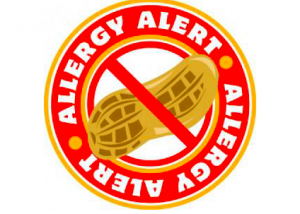 image found Here
image found Here
Almost daily I find myself twisting the lid off of my Skippy peanut butter jar. Peanut butter, one of my favorite foods, is such a common food and ingredient in a variety of things. My mother always says, “I never knew anyone with peanut allergies when I was a kid. Now, it’s like everyone has them.” (An anecdote). I know of many cafeterias where peanuts/peanut butter are banned altogether.
Peanut allergies are, it seems, an extremely common problem. As many people know, peanut allergies could be fatal or extremely serious. There are a variety of symptoms from hives to swelling and closing of the tongue/throat.
So what really is the cause of peanut allergies? Are they actually rising in prevalence?
According to a journal article in The Lancet, by Professor A Wesley Burks, the peanut allergy is, in fact, an increasing problem. There was an approximate 3.2% rise in peanut allergy prevalence between the years of 1989 and 1995 according to a study conducted in the UK, the article states. Over 3 million Americans are allergic to peanuts.
The article suggests that there is an increase in peanut allergies for multiple reasons. One theory is that when children are not exposed to potential allergens enough when they’re young, they’re likely to develop allergies. Interestingly, the article goes on to suggest that allergies are developed to foods that children eat more frequently during their childhoods. Another theory is that the preparation of peanuts before they are consumed could cause different chemical and metabolic reactions that might cause allergies. A third theory the article discusses is that skin-exposure to peanuts when children or babies are very young could cause peanut allergies.
The article discussed a multitude of studies to which the results were extremely hard to come out the same again. So, it is very hard to determine why peanut allergies are on the rise. But, they definitely are.
Interestingly, in contrast, The Journal of Allergy and Clinical Immunology, a random survey was conducted (observational study) and an increase in peanut allergy prevalence among children was detected between the years of 2002 and 2008. However, the increase was not determined as statistically significant.
 image found here
image found here
Jane E. Brody of The New York Times discusses multiple studies that suggest that fetal exposure to peanuts during pregnancy might actually immunize them from peanut allergies, contrary to the ideas of the past in which people thought early exposure actually caused allergies to develop. A study conducted followed over 8,000 children. 140 of them were allergic to peanuts. Mothers who ate nuts at least 5 times per month were the ones who had the children that were least likely to develop the allergy. Dr. Rushi Gapta, referred to in the article, went on to suggest that a there were studies conducted where neglecting to eat nuts during pregnancy actually increased likelihood of the allergy, even further than suggesting that simply consuming nuts would decrease risk. Other studies tested the same thing, but with other allergens. Cow’s milk and eggs were both tested. It turns out that earlier exposure correlated with decreased risk of allergy for each. *Perhaps this comparison could suffer from the Texas-Sharpshooter Fallacy!
In conclusion, scientists’ ideas about peanut allergies have changed. Where they used to think that early exposure caused allergies, they have conducted studies and done research that suggests otherwise: that early exposure increases tolerance to allergens and decreases likelihood of developing the allergy. The peanut allergy has been found to be on the rise.
 Image Found Here
Image Found Here

Very interesting topic! I really enjoyed reading it. I think, like viruses, we need to be exposed to allergens early on in order develop immunities against them. Not being alergic to anything, I feel pretty lucky. However, no one in my family is (with the exception of my brother, who is allergic to peppers after 20 years of not being alergic). So, it’s like most other things we see. A big factor is our biology and family history-if they were alergic, you’re more likely to be alergic too, and your environment. By trying these foods young, maybe you can avoid allergies in the future.
Me being the peanut butter lover than I am, your blog caught my attention. I never knew that peanut allergies drastically increased recently I just thought that its been steady for a long period of time. My personal hypothesis is that you can develop allergies to anything, but I think you will know after your first time trying it so early exposure would be a way to clarify if you have an allergy to it. Could it be hard to tell if a baby is allergic to something if they have a minor reaction to it? http://www.webmd.com/parenting/baby/baby-food-nutrition-9/introducing-new-foods This explains how it can be difficult to tell what a baby is allergic to if more than one new food is introduced in a day. It also shows certain foods that should be introduced later in a child’s life ( by at least the age 3) and one that stood out was peanuts!